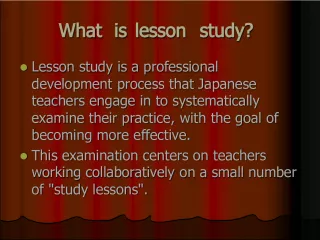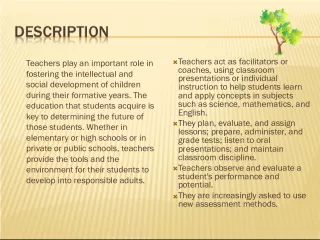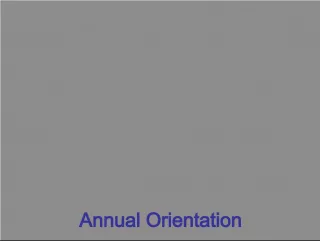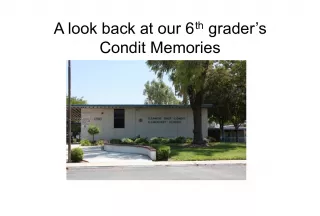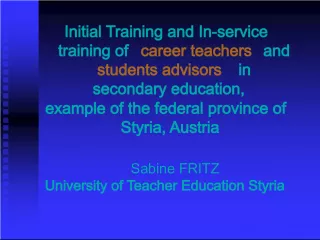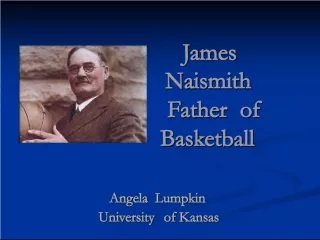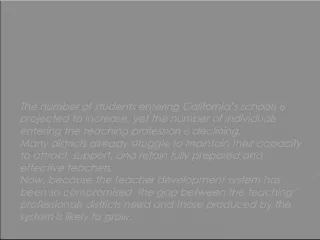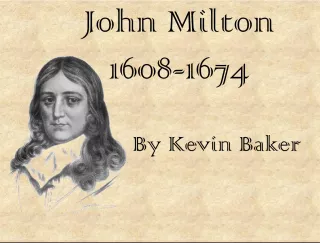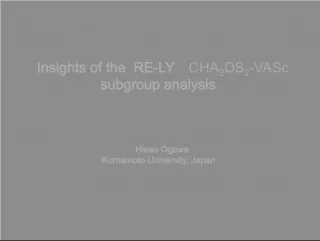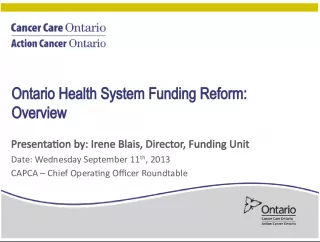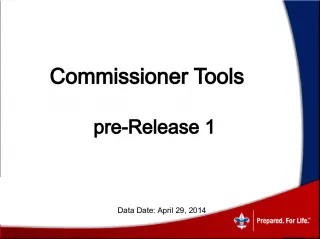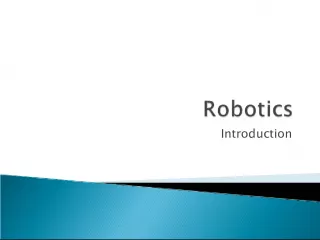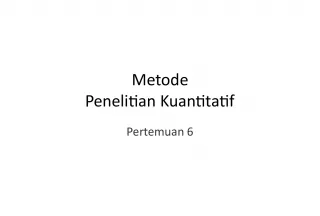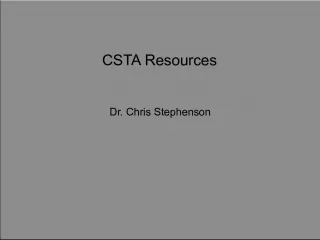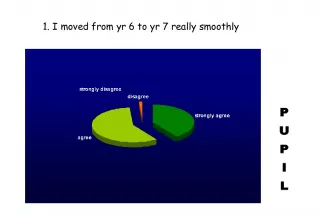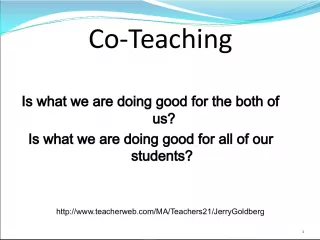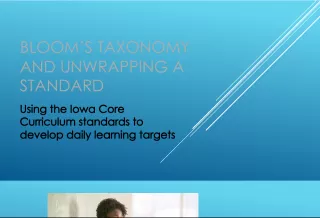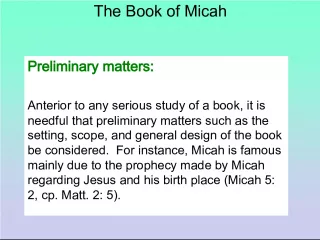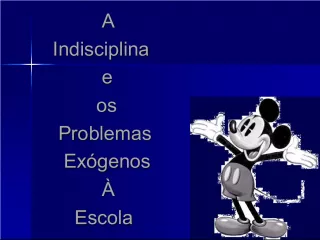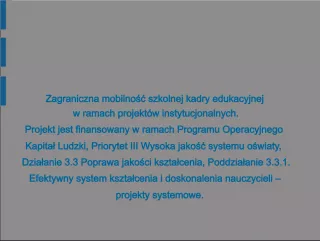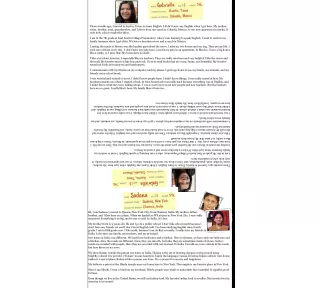Our Background as Teachers: Insights from Irene Mitta and Edith Farrell
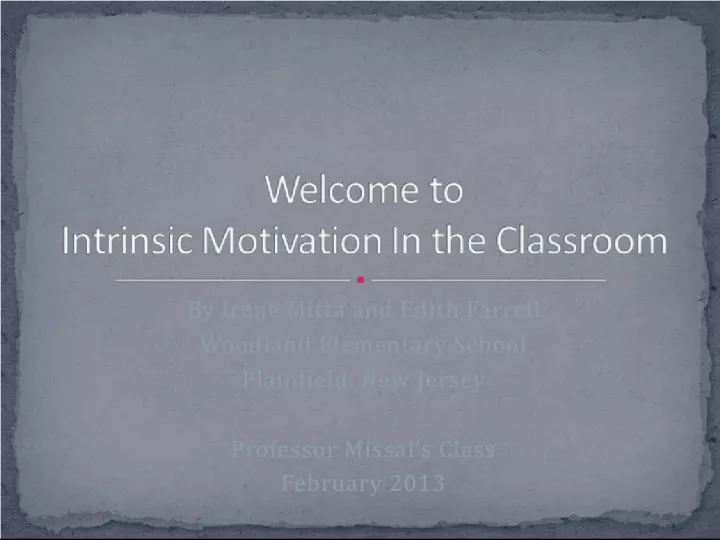

In this excerpt from Professor Missal's class in February 2013, Woodland Elementary School teachers Irene Mitta and Edith Farrell share their insights on
- Uploaded on | 0 Views
-
 stella
stella
About Our Background as Teachers: Insights from Irene Mitta and Edith Farrell
PowerPoint presentation about 'Our Background as Teachers: Insights from Irene Mitta and Edith Farrell'. This presentation describes the topic on In this excerpt from Professor Missal's class in February 2013, Woodland Elementary School teachers Irene Mitta and Edith Farrell share their insights on. The key topics included in this slideshow are . Download this presentation absolutely free.
Presentation Transcript
Slide1By Irene Mitta and Edith FarrellWoodland Elementary School Plainfield, New Jersey Professor Missal’s Class February 2013
Slide2Our Background As Teachers - Edith and Irene A thought to start the day! “If they give you lined paper, write the other way.” - Spanish proverb by poet Juan Ram ó n Jim é nez
Slide3Alfie Kohn, renowned educator wrote many books on how to get “beyond discipline and rewards.” He suggests: It is impossible to motivate students! It’s not really possible to motivate anyone except yourself. If you have enough power you can MAKE people do things…That’s what rewards and punishments are for. But you can’t make them do things WELL. You can command writing, but you can’t command good writing…Just like you can command art but you can’t command good art. Let’s do a brief activity……..
Slide4Index cards and markers have been provided: Please take five minutes and write down (just a few short sentences): Side 1 of the Index card. The name of the teacher who influenced you the most in your life and why. Side 2 of the Index card. The name of the teacher who influenced you the least or had a negative impact and why. (If you can even remember their name!)
Slide5In groups of two or three (please move chairs if you want to!!), please take five minutes To briefly share the teachers who influenced you in a positive way. To briefly share in your same groups the details about the teachers who did not help you learn and had a negative impact. Let’s take a moment and hear one or two stories with the entire group. Does anyone want to share their story?
Slide6This discussion is based upon Alfie Kohn’s philosophy: 1. Supporting Student Autonomy isn’t having them pick this over that……Actually think about letting students GENERATE possibilities rather than CHOOSING from our menu. Student CONSTRUCTION not selection….. We would be supporting the student’s need to be in control over their own lives. OK I KNOW…………..so HOW do we do this………..
Slide72. Autonomy can be supported and choices can be made collectively. Decisions can be made as a class together…. Autonomy and Community are combined, they are really in practice….what we call democracy..(when it’s at its best) YES….even with absurdly SHORT periods and UNBELIEVABLE numbers of students, it is still worth the time to stop and devote some of that limited time to class meetings and planning as a group. The results of student engagement in the process are REMARKABLE…..!!! Meetings/collaborative time make the working time MORE productive.
Slide8This is NOT students doing whatever they want…..this model does include structure and the teacher drives the curriculum based aspect by making sure students KNOW what they need to learn and then let THEM help you get there. TEACHERS still retain a voice………. Instead of YOU FOLKS CHOOSE….. “LETS FIGUE THIS OUT TOGETHER!”
Slide9Keeping hold of power is familiar but there are great rewards in giving power away…..in sharing power with our students we show we trust them, value their opinions. Their ideas and creativity are boundless. When they feel they have been part of the process they are far more motivated to learn because it comes from inside themselves --- that’s intrinsic motivation. Not based upon rewards and punishments.
Slide10SHARE who you are with students, appropriate personal stories, ask them for advice, engage them in authentic conversation while teaching even if just short conversations………(Glasser) ALLOW students to help you with anything they possibly can to give them a sense of ownership and trust….. EMBRACE the idea that punishments and rewards are limiting you and it’s freer without them (Kohn)…..try it for a season….. Smile BEFORE JANUARY…..smile in September - Day 1
Slide11If we think back to KhalilGibran's reading from 'The Prophet' about teaching, he says that the teacher does not 'take you into the house of his wisdom but rather leads you to the door of your own mind.”
Slide12Please take a few minutes and write on the index cards provided one NEW idea that you might use in your classroom this year, that would change the way you do business in your classroom. To perhaps reach students in a different way. Let’s discuss some possibilities. Would anyone care to share their ideas with the group?
Slide13Even if this kind of learning doesn’t happen anywhere else in your school, you can be the classroom where the children learn to listen to their own intuition, to find their creative voice and express themselves in new ways. Then your name will be on the front of somebody’s index card as the teacher who influenced them the most!!!!
Slide14"I cannot teach a child well, whom I do not know well. How can I teach that child well, if I do not know her enthusiasm or why she makes mistakes or what seems to be out of sorts with her at a given moment, or what is behind her at home.” Theodore Sizer Move beyond teacher/student role Shift that paradigm. Remember if you get lined paper….write the other way!!
Slide15Thank you for joining us today. If you wish to continue this dialogue or have questions, you may contact us at: imitta@plainfield.k12.nj.us efarrell@plainfield.k12.nj.us
